Learn the Ancient Art of Karate!
Over 3,000 students, in 26 dojos (venues) across South Africa, Botswana, The Democratic Republic of Congo, Mauritius, Mozambique and Zimbabwe
IJKA Founder Sadashige Kato left behind the lesson: “We should strive to eliminate discrimination against poverty, race, religion and beliefs. To train karate is to create and be part of such an ideal society.”
Karate is a martial art of self-defense which uses the human body and limbs in a scientific and effective way. Karate incorporates blocking (uke), punching (zuki), striking (uchi) and kicking (keri). Karate for children is not only fun but also provides many important benefits to young people. Some of these benefits are referred to in Japanese as chiiku (mental development), tokuiku (moral development) and taiiku (physical development). These are the same three classes of personal development found in traditional educational systems.
In terms of chiiku (mental development), Karate helps build concentration, focus, clear thinking and decisiveness. Karate has strong internal benefits as well. It helps instil patience, discipline, perseverance, understanding and open-mindedness. It builds confidence, develops self-control and increases calmness, courtesy and peace — all of which will aid everyone in every endeavour they undertake in life. These correspond to tokuiku (moral development). Of course, Karate is good for the body too (taiiku). Physically it is excellent for the heart, builds strong bones and bigger muscles, creates resilience, and makes the body less susceptible to sickness and injury. In all these ways, Karate is profoundly helpful to young people in dealing with the many challenges facing them in today’s society. It brings them balance and perspective at an age when these are needed most. It adds a strong foundation to their character.
Youngest Student
Oldest Student
Female / Male Split
Students
Dojos
Why Students Join IJKA
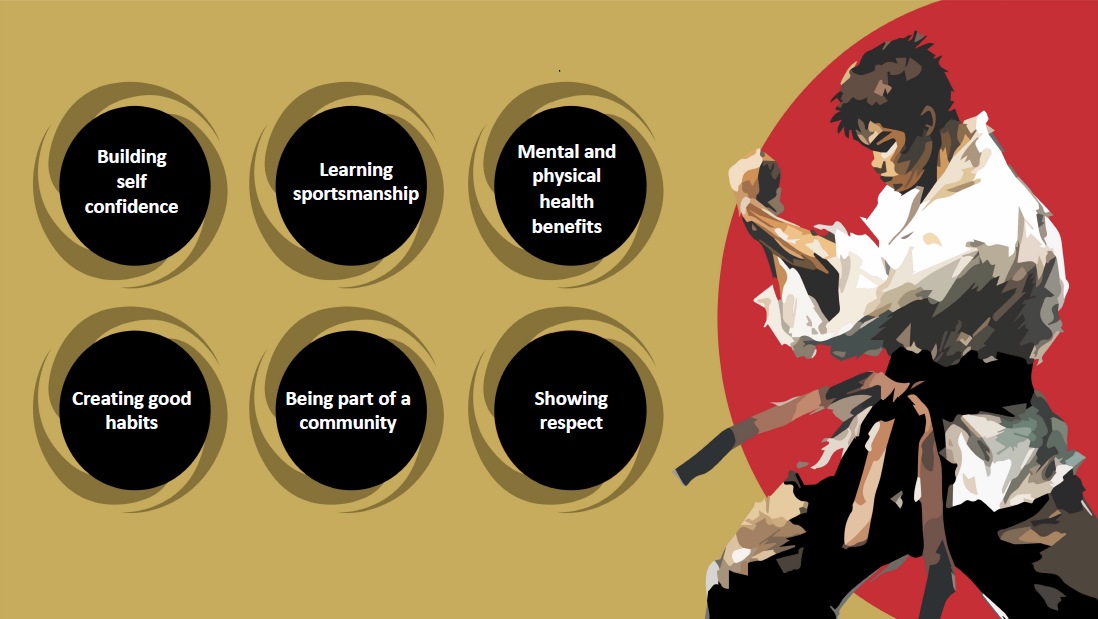
The Values of IJKA

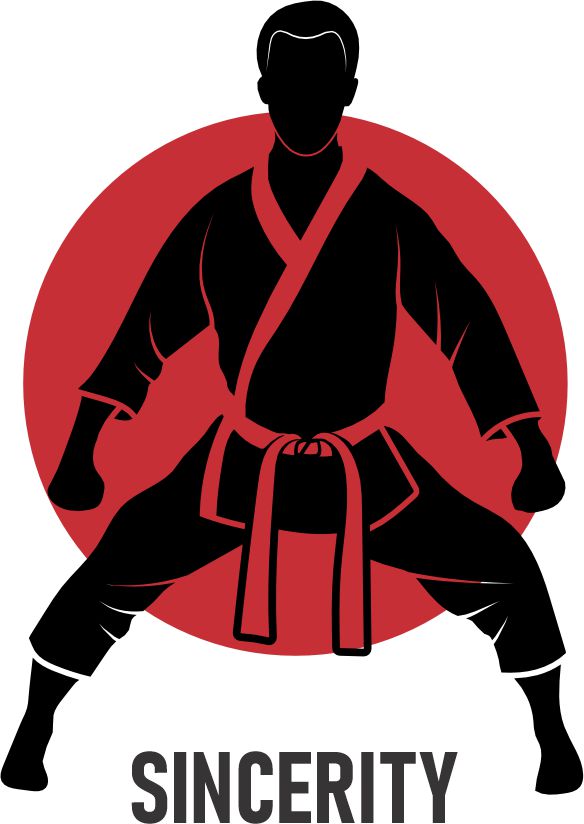



First and foremost, the International Japan Karate-Do Association (IJKA SA) will strive to teach students the original principles and fundamentals of shotokan, budo karate, as was taught by Nakayama Masatoshi sensei. We will teach and incorporate the fundamentals of shotokan karate in IJKA SA, regardless of race, sex, religion, creed, social or economic status. These fundamentals are character, sincerity, effort, etiquette and self-control. These fundamentals can and should be incorporated in every karateka’s daily life. Karateka should strive to live by these in all situations.
It is also important that karateka show respect, not only to their fellow students, i.e. juniors, seniors & instructors, but also to their peers, colleagues, employers, mentors, family and friends, in their everyday life. The phrase that should guide us is: “Better to be humble, than arrogant!”
View the IJKA SA brochure here
The 5 Maxims of Karate
1. Seek perfection of character (Character)
Jinkaku kansei ni tsutomuru koto
2. Be faithful (Sincerity)
Makoto no michi o mamoru koto
3. Endeavour (Effort)
Doryoku no seishin o yashinau koto
4. Respect others (Etiquette)
Reigi o omonzuru koto
5. Refrain form violent behaviour (Self-Control)
Keikki no yuu o imashimuru koto
Dinky Karate
Young students between the ages of 3-5 are taught karate related games.
The Dinky students have fun and learn competitiveness in a workout which is not only aimed at having fun but also to learn a skill at the same time.
The concept of Dinky Karate also strengthens the will and aims at character building through learning the values of etiquette and the discipline.
IJKA SA is an affiliate of IJKA international.
Information regarding IJKA International can be obtained on
its official website www.ijka-karate.jp
Meet the IJKA International and IJKA Japan Chief Instructor
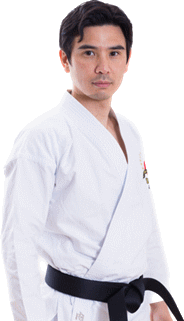
Takato Utsumi (7th Dan)
1981 Born in Chiba pref. Japan
1998 Enrolled in Komazawa University (Belonged to Karate team). Trained under Takeshi Oishi Shihan
2004 Trained in Australia
2005 Visited Israel. Kata team coach of National team
2006 Back to Japan. Established Dojo
2014 Inaugurated as IJKA Japan Chief Instructor
2017 Inaugurated as IJKA Vice Chief Instructor
2020 Inaugurated as IJKA International Chief Instructor
Meet the IJKA SA Chief Instructor
Bernard Buys (6th Dan)
- Winner of over 120 medals and trophies, including gold, silver and bronze
- SA Karate National Championships, multiple junior and senior Grand Champion (kata and kumite)
- SA All Styles NationalChampionships, multiple champion (kata and kumite)
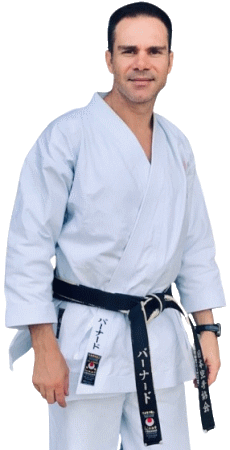
And Now Meet our Mascot

Ichibanni
Ichibanni was designed by black belt student Leila Chite.
Ichibanni represents the values of IJKA SA while also signifying that karate is a fun sport wher life-long friendships are made between students and their families.
And Proudly, Our National Team of 2022’s Championships in North Macedonia
From left to right:
Adam Caw, Josh Greyling, Liwa Xosa, Tayten Henry (medalist), Darius Steinmetz (medalist), Taylor Francis, Kiara Rodrigues, Ellie Shardelow, Ngcinga Xosa (world champion), Alex Shardelow, Liam Duvenage, Leila Chite, Jarryd Gartland (medalist), Bernard Buys (Chief Instructor)
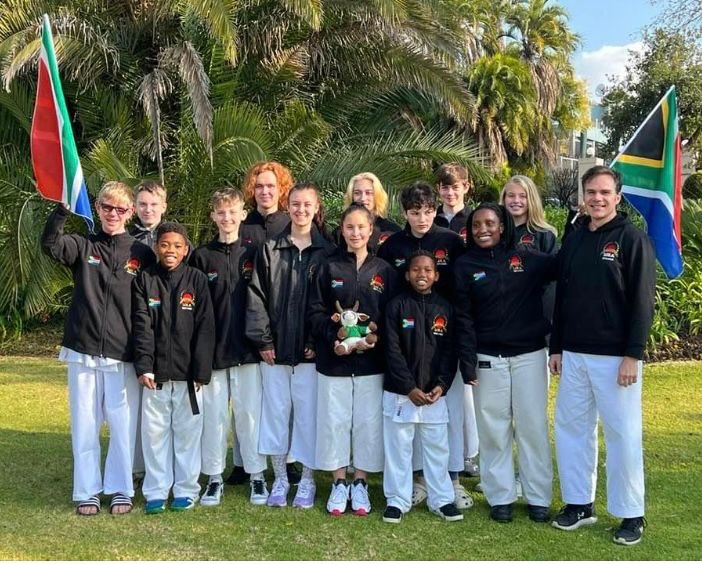
What the parents of some of our students have had to say:
“The proudest moment of any parent, is to see the growth and prosperity of their child in a discipline like karate. Nikara has over the last 8 years under the leadership and guidance of Sensei Bernard, achieved a Shodan Black Belt, which she wears very proudly. I must say, the discipline and teachings of Karate has had a profound impact on Nikara’s development from a young child to a very confident adolescent. Watching her graceful yet complex movements of the different Kata’s allowed me over the years to have the utmost respect for the art of karate. The exposure that the discipline affords all their students is truly developmental and empowering to the youth. It has certainly touched the lives of our family, but more importantly assisted in raising a young, disciplined yet humble young lady, that in my opinion packs a “punch”!”
“Josh was a shy child who wasn’t very keen on doing team sports so we needed to find an individual sport that he could participate in and enjoy. Karate was the perfect choice for him! Karate has given him so much self-confidence as well as all-around physical fitness. Karate has numerous benefits for young kids. It is a great way for young kids to improve their strength, flexibility, coordination, and balance. By teaching them how to fight and defend themselves in a safe environment. It’s helped improve Josh’s overall confidence and I don’t need to worry about him being bullied at school. Karate has the added benefit of teaching them structure and discipline by having to follow instructions as well as needing to work towards incremental goals by achieving their various belts. Even though Karate is an individual sport, Josh has been able to make friends with like-minded kids. And despite being a very shy person, he now has the confidence to even help teach the younger kids! I would highly recommend karate as one of the best sports for kids to do.”
“Karate has helped Adam in many ways. When Adam started karate he was somewhat a shy and anxious boy with low self confidence. Today he is a completely different child he is confident and is becoming a great leader in the dojo. Karate has also taught Adam self control and focus and to never give up.”
“Prior to enrolling with the IJKA SA and commencing with the programme under Sensei’s Bernard’s guidance, Leila was a very reserved, timid and soft-spoken child. After starting karate and grading upwards in the ranks to the senior belts, there was a marked difference in her. She became more confident, has greater focus, including academically and progressed along a path of general success and achievement in virtually everything she undertook. The difference has been astonishing and continues to manifest itself with every day, in all her undertakings. Karate, particularly under Sensei Bernard’s instruction, has definitely been a major factor in my child’s development and evolution. Enrolling her in karate was one of the best decisions we have made as her parents.”
